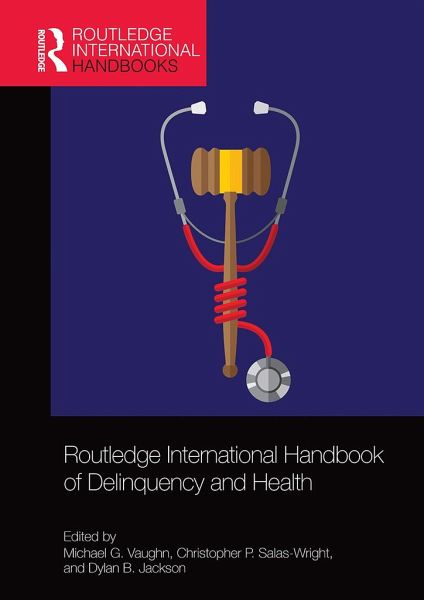
Routledge International Handbook of Delinquency and Health
Versandkostenfrei!
Versandfertig in 1-2 Wochen
61,99 €
inkl. MwSt.
Weitere Ausgaben:

PAYBACK Punkte
31 °P sammeln!
The Routledge International Handbook of Delinquency and Health presents state-of-the-art research and theorizing on the intersections between health, delinquency, and the juvenile justice system. Organized into three parts-Theoretical and Empirical Foundations; Behavioral, Mental, and Physical Health Conditions; and Prevention, Policy, and Health Promotion Systems-it is the largest and most comprehensive work of its kind, featuring contributions from scholars from multiple nations and global regions. A growing number of researchers, practitioners, and policymakers from criminology and criminal...
The Routledge International Handbook of Delinquency and Health presents state-of-the-art research and theorizing on the intersections between health, delinquency, and the juvenile justice system. Organized into three parts-Theoretical and Empirical Foundations; Behavioral, Mental, and Physical Health Conditions; and Prevention, Policy, and Health Promotion Systems-it is the largest and most comprehensive work of its kind, featuring contributions from scholars from multiple nations and global regions. A growing number of researchers, practitioners, and policymakers from criminology and criminal justice, social work, medicine, psychiatry and psychology, and other health science disciplines engage with marginalized adolescent populations who are at elevated risk for violence and delinquency, alcohol and other drug use, health and mental health problems, and other difficulties directly related to public safety and well-being. These risk factors often lead to short-term (e.g., detention, juvenile residential treatment facilities) and long-term (e.g., prison, parole) contact with the criminal justice system. As these fields increasingly overlap, the distinctions between them are blurred. Sound decision-making in the juvenile justice system depends on adequate research and policy at the intersection of delinquency and health.¿ This volume represents an agenda-setting scholarly resource for the expansion of research and policy-making across the international delinquency and health continuum, and will be an essential resource for all who study or work in the field.














